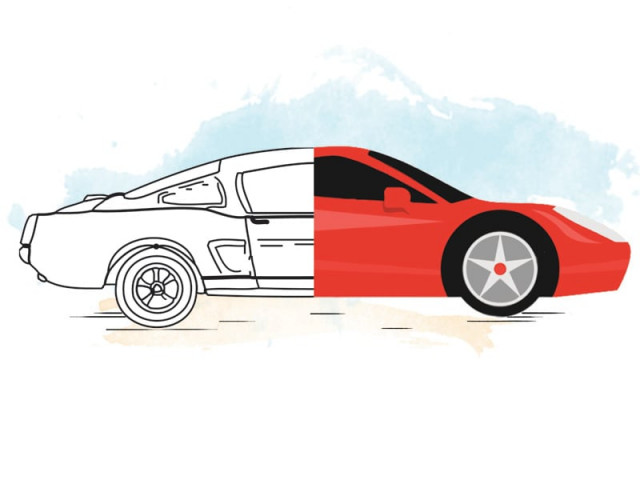Ambitious goals set with new EV policy
Targets 100% zero-emission vehicle fleet by 2060 with interim target of 30% NEV sales by 2030

The government is set to introduce incentive packages for electric vehicles under its New Energy Vehicle (NEV) Policy for 2025-2030, offering sales tax exemptions for locally manufactured components. Additional incentives include reduced customs duties on parts and complete NEV imports, along with green financing for investors.
The NEV policy, developed by the Engineering Development Board (EDB) under the Ministry of Industries and Production, presents a comprehensive framework to adopt sustainable, low-emission vehicles and foster green technology across Pakistan. Sources told Express Tribune that the key features and incentives introduced in the policy aim to reduce dependence on imported fossil fuels and promote economic stability by targeting a 100% zero-emission vehicle fleet by 2060.
To support manufacturing, NEV-specific technology zones will offer reduced-cost space, leasing options, and green loans. Financial benefits will include a 1% customs duty on NEV parts and 10% on complete NEV imports until 2027, along with sales tax exemptions for locally manufactured components. Heavy commercial vehicles will be incentivized with customs duty reductions until local production increases.
The policy outlines a plan for a network of charging stations across cities, highways, and public spaces, with subsidies for Level 2 and Level 3 chargers. Private companies will receive income tax exemptions, subsidised electricity rates, and reduced land costs for a 10-year lease to install charging stations. For consumers, the policy offers toll and registration fee exemptions and up to 25% rebates for fleet NEV adoption. Interest-free loans will be available to government employees and fleet operators, with targeted green loans for commercial and public transport.
The policy addresses the urgent need to cut carbon emissions, as Pakistan's transportation sector currently contributes nearly 30% of the country's greenhouse gas output. It envisions a gradual transition to a zero-emission road fleet by 2060, with key milestones of 30% NEV sales by 2030, 90% by 2040, and 100% by 2050. This policy aligns with Pakistan's Nationally Determined Contributions (NDCs) under the Paris Agreement, aiming to reduce emissions by 11.3 million metric tonnes of CO? within five years and 64.9 million metric tonnes by 2035.
The NEV policy focuses on promoting the local NEV manufacturing industry, decreasing reliance on fossil fuel imports, and reducing carbon emissions. Major incentives are provided to boost NEV production, including tax breaks, reduced import duties on NEV components, and green financing options for companies investing in environmentally friendly technologies. The government will establish Special Technology Zones dedicated to NEV technology, allocating 20% of the space at reduced costs to support these initiatives.
To accelerate NEV adoption, the policy emphasises a widespread charging infrastructure across Pakistan. Charging stations will be installed in public areas and along major highways, with a requirement for Oil Marketing Companies to set up Level 3 charging stations at 10% of their locations. Private charging service providers will receive incentives, such as tax exemptions, reduced land costs, and simplified permit processes to facilitate easier installation and electricity access.
A key aspect of the NEV policy is its focus on environmental protection. It introduces safety and recycling standards for NEV batteries and components, promoting a circular economy. Financial incentives will encourage companies to invest in battery recycling, and recycling centres will be established nationwide. The government also aims to implement end-of-life policies for traditional fuel vehicles, incentivising consumers to replace older models with NEVs.
The policy calls for a Centre of Excellence in NEVs, which will focus on research, innovation, and workforce development to support the electric mobility sector. This initiative will include partnerships with academia and industry to foster technological advancements and equip the workforce with necessary skills for the NEV ecosystem.



















COMMENTS
Comments are moderated and generally will be posted if they are on-topic and not abusive.
For more information, please see our Comments FAQ